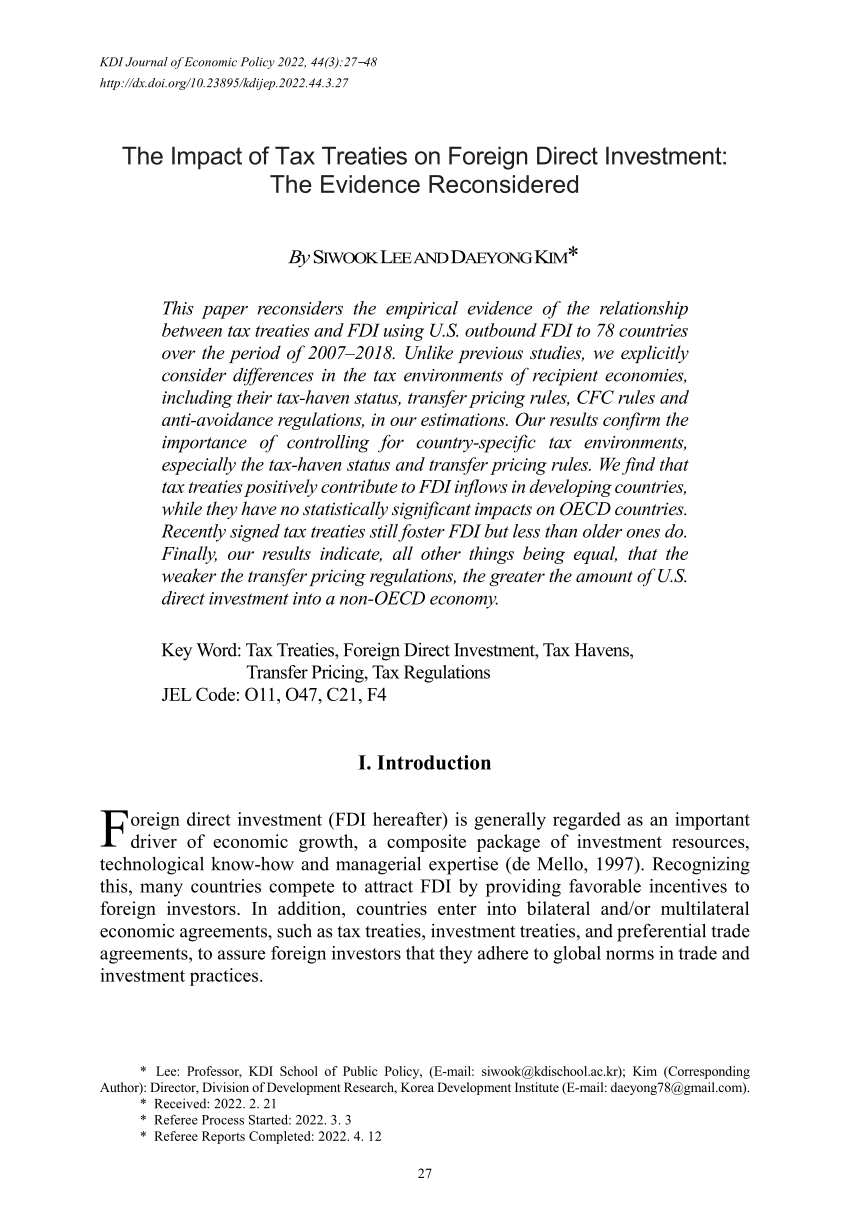In an era where energy security and sustainability are at the forefront of global agendas, the European Union (EU) is increasingly focusing on expanding its energy sector investments beyond its borders. Central to this expansion are tax treaties, which play a critical role in shaping the financial landscape of international investments. These agreements, designed to prevent double taxation and foster economic cooperation, have a profound impact on how EU-based energy companies strategize their investments in foreign markets. This article delves into the intricate relationship between tax treaties and EU energy sector investments abroad, exploring how fiscal policies are navigated to optimize economic outcomes.
How Tax Treaties Shape EU Energy Investments Abroad
Tax treaties serve as essential instruments for EU energy companies looking to invest in foreign markets. By providing clarity and certainty regarding tax liabilities, these treaties reduce the risk of double taxation, which can otherwise deter cross-border investments. For instance, an EU-based company investing in a renewable energy project in a non-EU country can benefit from reduced withholding tax rates on dividends, interest, and royalties, thereby enhancing the overall return on investment. Moreover, these treaties often include provisions for the exchange of information, which can help mitigate the risks of tax evasion and ensure compliance with international tax standards.
The influence of tax treaties extends beyond mere tax reduction; they also create a more predictable investment environment. By establishing clear rules and dispute resolution mechanisms, these agreements provide a level of legal certainty that is crucial for long-term energy projects, which often require substantial upfront capital and have extended payback periods. This predictability is particularly important in the energy sector, where regulatory changes and geopolitical tensions can significantly impact investment decisions. Thus, tax treaties not only facilitate initial investments but also support the sustainable growth of energy projects abroad.
Furthermore, tax treaties can enhance the competitiveness of EU energy companies in the global market. By securing favorable tax treatment and reducing the overall tax burden, these agreements can help EU companies offer more competitive pricing and financing options compared to their non-EU counterparts. This advantage is particularly relevant in bidding processes for large-scale energy projects, where cost efficiency is a critical determinant of success. As the EU continues to champion the transition to renewable energy, the strategic use of tax treaties will be pivotal in securing international partnerships and expanding the reach of its energy sector.
Analyzing Fiscal Policies in the Global Energy Sector
The role of fiscal policies in the global energy sector is multifaceted, encompassing tax incentives, subsidies, and regulatory frameworks that influence investment flows. In many countries, fiscal policies are designed to attract foreign direct investment (FDI) by offering tax breaks and incentives for energy projects. These policies are particularly prevalent in emerging markets, where the need for infrastructure development is acute. By aligning tax treaties with domestic fiscal policies, EU energy companies can maximize their investment potential while contributing to the host country’s energy infrastructure development.
However, navigating the complex web of fiscal policies requires a deep understanding of both the local tax environment and the broader international tax landscape. Discrepancies between domestic tax laws and international treaties can lead to challenges such as tax base erosion and profit shifting (BEPS), which have become focal points for policymakers worldwide. The OECD’s BEPS initiative, for instance, aims to address these challenges by promoting transparency and coherence in international tax matters. EU energy companies must, therefore, stay abreast of these developments to ensure compliance and optimize their tax strategies in foreign markets.
Moreover, the interplay between fiscal policies and environmental objectives is becoming increasingly significant. As countries strive to meet climate goals, fiscal policies are being reoriented to support sustainable energy investments. This shift presents both opportunities and challenges for EU energy companies. On one hand, there are growing incentives for investments in renewable energy and clean technologies. On the other hand, companies must navigate an evolving regulatory landscape that may include carbon taxes, emissions trading schemes, and other environmental levies. Understanding and adapting to these changes is essential for EU companies to maintain their competitive edge and contribute to global sustainability efforts.
As the EU continues to expand its energy sector investments abroad, tax treaties and fiscal policies will remain pivotal in shaping these ventures. The strategic application of these instruments not only facilitates smoother cross-border operations but also enhances the competitiveness and sustainability of EU companies in the global energy market. However, the dynamic nature of international tax laws and environmental regulations poses ongoing challenges that require vigilant adaptation and strategic foresight. By leveraging tax treaties and aligning with global fiscal trends, the EU can effectively navigate the complexities of international energy investments, reinforcing its role as a leader in the transition to a sustainable energy future.
